|
I want to share a story with you. It sounds like it’s about a monk. It isn’t.
It’s about you, and me, and anyone else on this planet who has to interact with other human beings. It’s especially about people who work jobs in which they help others. Nod your heads, you lovely nurses, bus drivers, policemen, social service people, and so many more. It’s an old story from another language, so I’m including multiple translations to give you the full range of the idea, and let you enjoy the nuances of how stories get sculpted across culture and time. Here goes:
It is perhaps not inappropriate to quote Geico at this point: "It's what ya do." It's what I try to do, as a bus driver, and it makes my days a lot easier. If Eastern philosophy isn't your thing, that's okay. We can quote everyone's favorite multinational conglomerate for equal inspiration: Ya "just do it." Maybe that scorpion will love you, or maybe he'll try to get under your skin, or perhaps you'll bring out the non-stinger in him over time... but you're doing you, in the best way. Doesn't that feel good? ---- This lil' grab bag of translations comes from all over the internet– here, here, here, here, here, here, and here. I first heard the story in spoken form, and its historical origins are uncertain. But we have the story.
1 Comment
If you’ve watched this already there’s no need to rewatch, but I’d be remiss not to share a few words on the change. Diane Duthweiler, Tim Pearson and the good folks at The Seattle Channel were kind enough to update my recent interview segment with introductory language more accurate to our conversations.
In the course of being interviewed, these things can happen. You get misquoted, and you don’t really expect them to bend over backwards to do something about it– they’re busy, their bosses are busy, and the public has moved on to something else by now, already way past whatever little kerfuffle of words was bothering you so. If the misquote represents you in a manner that damages your relationships with colleagues or friends and family, well, you end up paying the price, and no one besides. But that didn’t happen here. For me the real star of this segment isn’t me, but Diane. Journalism was once a word referring not simply to a profession but an ethos: the principled consideration of the type of news pursued, how it was conveyed to the public and when, the protection of sources... these responsibilities and others were recognized as such, and executed with a certain duty and class. Diane and co. didn’t have to go to the trouble of hearing my concern, proactively reach out to me, consult with myself, her associates and boss, pull the piece, rerecord dialogue and repost the segment. She didn’t have to, but she did. And it's not like she didn't have anything else to do! It speaks to her integrity not simply as a journalist, but as a human. She’s the wonderful newscaster I thought she was, and more. It’s a powerful tool to wield, television, and she does so with aplomb. I couldn’t be more grateful. In short: Thank you, Diane. You are just too cool for school. For everyone else: I got interviewed on The Seattle Channel! Check it out! “Merry Christmas, happy holidays, all that good stuff," I call out to my ragtag crew. We are the nighttime 7 and we’ve just boarded the crowd from NightWatch, the shelter dispersal program on the east edge of Vietnamtown.
It's a good group, these guys. They may not look it, shuffling aboard at their own pace, perfumed with the halo of residue-stiffened layers and aged by the clash of hope and time– but they are. The rank-and-file wage earners are long since in bed by now, and I’ve driven home the swing shift people already; we’re the leftovers, keeping time because someone’s got to, visible now because there’s no one else around. My bus, humming with activity on an otherwise desolate street, feels simultaneously like the forgotten corner of a dying democracy… and the hard leading edge of contemporary urban existence, immediate, vivacious, absolute. No need to be anywhere else. NightWatch's structure demands a level of planning and responsibility that weeds out certain attitudes. You have to procure a ticket at an office downtown during the day, figure out how to get from there to the NightWatch building and then do so when it opens in the evening, retain the previously procured ticket to gain entrance, ask for and receive another ticket guaranteeing you a bed in an area shelter, which you then commute to, using a third bus ticket they'll have given you. It's complicated. The resulting group who uses the service has the mental health and aptitude to take on the task. I'm not expecting much in the way of a response to my holiday well wishes, but they double down on appreciative whoops and hollers. They're surprised by my enthusiasm, and the other passengers are in turn surprised by theirs. "Hopefully they had an extra good meal at NightWatch tonight," I say to the fellow nearest me. It's Christmas Eve. Kevin, the erudite street denizen you know from this earlier post, stands near his repurposed stroller-as-wheelbarrow and asks politely, through the grit and grime of his appearance, “and how are you, good sir?” “Really well,” I reply. “I’m happy to be here. I'm glad NightWatch was still open today for you fine folks.” Sometimes I wonder if people know I’m being serious. Do they think I’m being sarcastic? When you’re already at the level of complete honesty, you have no further recourse for authenticity. You’re already being as genuine as possible. You can do things like paraphrase yourself or make hand gestures, but you really just have to trust that they’ll somehow read your legitimacy. I said what I said, realizing I might have sounded awfully snarky, but trusted their ability to read me. At that moment a fellow with a cap elbowed forward with a freewheeling grin. Could’ve been a truck driver, construction, utility and electrical: you know the type. The American man too quickly aged by his work, the hands-on service jobs that wear their employees like a cloak, hard hats and stubble and cold beer, joints that ache in the night. How does he smile through it all? How much of me is him, and will I be able to grin as well? “Hey,” he said. “I love what you’re doing.” “Yeah?” “You’re doing the Kandinsky Method.” “Oh yeah?” “Yeah, it's a new thing in psychology. Where you're like not quite cheesy, but still hella cool at the same time…” “Like, sincere?” “Hell yeah, sincere! Like almost corny, but just straight up, and it ends up being highly connectible and super badass. Kandinsky, he was this painter,” “Yeah, the abstract guy! I’ma have to check this guy out!” “You really should, it's really gangster!” I breathed a sigh of relief. This guy didn’t just get me, he got it. The whole thing. Kind truthfulness so unconcerned with appearances it paradoxically ends up becoming hugely attractive. As he retreated to join his friends, Kevin piped up: “too bad you don't get credits, or a certificate! It's like a class out here.” “You know, I went to university, but I learn more out here. It's just so much bigger out here.” “Well, think about it. In a classroom you have what, maybe forty-one, forty-two people tops. Including the teacher.” “And they're probably from comparable backgrounds,” “Whereas out here you've got hundreds. Different hundreds, every day!” “Thousands, I'd say! From all walks of life. It's just incalculable.” It's a learning experience, certainly, but it's self-directed to a nigh overwhelming degree. When the stimuli are this varied and all encompassing, you only see what you look for. You can pay as much or as little attention to whatever you want, and walk away with lessons the diametric opposite of your colleague who's exposed to the same. “And, you get paid!” Kevin was saying. Which I'm thankful for. But that's not the best part of all this. The best part of all this is getting to spend time out here with the folks and build something positive, take away something truthful to fold up in my pocket and save for later, that I might remember all that was good on the eastern outskirts of downtown, when people are deploring the less fortunate. I took the green light, chuckling to myself. “Highly connectible and super badass.” “Really gangster.” Wassily Kandinsky, don’t roll over in your 1944 Neuilly sur-Seine grave! We get your general idea. Look past the verbiage! "I heard you're off the 7."
Somehow the secret's gotten out. I wasn't going to say anything here, because I have over a year's worth of 7/49 stories stockpiled and nobody reading the blog would've noticed I was driving anything else... but Metro's worse than your grandmother's bridge club. Rumors are always flying, and heaven help you if you actually do something radical. You'll never hear the end of it. They're already joking about it at the base. A friend was ribbing me today: "it even happened to Nathan! He's 'just gonna take a short break at North Base.' How many times have you heard that before? They never come back! They neeever come back!" It would be so easy to say I got tired of the people. Of course he did, we'd say, nodding. How convenient. We could relax, comforted by the idea that there's nothing left to learn and therefore nothing to pay attention to, that irony is king and that positivity, on a long enough timeline, gets bulldozed. On the street, certain things have to be simplified. There's a briefness to the interactions. All relations between men and women, for example, are suddenly either marriages or sibling relationships. Most of my friends are women, and when any of them come out for a bus ride with me, they have to tolerate other passengers telling us how badly we need to get married. Stuff like that. Similarly, when people ask why I'm spending Spring driving empty shuttles through north-end neighborhoods you've heard of but never been to, there's no time to answer. But being that this is neither a street corner nor a Twitter feed, we actually have a second to get into this properly. I started driving buses in 2007. I did two years in the Bellevue 'burbs before coming downtown, where I fell in love with trolleys, Metro's busiest and most complicated work, and especially the 7, the busiest, most notorious, and most involving of the trolley lines. The primary compelling reason for my sticking with urban routes over the Eastside or North End was the presence of a more equal exchange of energy between myself and the passengers. On the 7, more than any other route, whatever I put out is what I'm going to get thrown back in my face, times ten. There is so much light out there. Sure, people are more profane, more ignorant, more unstable and more dangerous. They're also more polite, more respectful, more grateful, and a lot more loving. It's just more, on either end. The spectrum is vast. While no demographic has a sole claim on bad attitudes, I notice a disproportionate amount of goodwill when driving through working-class and low-income neighborhoods, and I find spending eight hours in such an environment more rewarding and frankly, more interesting. I've left the 7 and returned to it from 2009 onwards, but my current stint is the one most people think of: four full years of five nights a week on the 7/49. I'm aware of no other operator who's done that. I've established the level of community that comes with that much time spent engaging together, and I try to share it as best I can for you on this blog. There is a set of faces numbering in the thousands whose existence I cherish, whom I see nightly. I see them more often than my friends. I've watched them graduate high school, get divorced, change their diets, buy homes, recover from accidents. I've seen them get pregnant, get addicted, get clean, die, live, lose, laugh, and live again. Mostly, I've listened. There is so much more, immeasurably more that I can learn from them, than they possibly could from me. The working souls who cross generations and oceans to speak our common language, that of a smile. The street brethren whose respect I feel lucky and honored to have earned. The high energy hive of the city's vortex, itself a breathing thing, and you're the central nerve running through it... The high of being at the center of a center of the universe. How could I possibly get tired of that? A cluttered mind invites unhealthy thinking, and I've had too much going on lately. The film, the book, the blog... I need time to think. You've heard the phrase familiarity breeds contempt; it also breeds ungratefulness, and I try very much to sustain a sense of gratitude for the ordinary. I'm at North Base for a shakeup because the rest of my life is too busy, and the shorter commute gives me an extra two hours per day. It's not because I'm fed up with the urban core, but because I don't want to lose sight of what I love so much about it. More specifically, I need time to think because I'm in post-production on my film! The 7/49 and routes like it are high-maintenance affairs demanding enormous focus and patience. Production on my movie was a Herculean undertaking involving almost 100 people, and I want to make sure their efforts shine in the best possible final product. I was working full time at night, going to school in the evening, and heading up preproduction and production during mornings and afternoons. That was a bit much. I need the mental headspace to think about Carl Theodore Dreyer's camera movements in Le passion de Jeanne d'arc and how they sustain rhythm, or how Kurosawa maximizes compositional space when shooting in the Academy ratio, or how I can learn from Roger Deakins' tendency toward rim lighting and avoiding dirties in close-ups. I can't do that when I'm trying to figure out how to get a half-conscious Abdilahi off the floor of my bus, or make sure Ibrahim doesn't scare people with his questions and near-overdoses. If you see me doing low-key routes so simple they don't make sense, it's because I'm trying to wrestle complicated beasts in my other lives, and need bus-land to be straightforward for a moment. A friend once advised me on the value of separating decisions that move towards something positive, rather than away from something negative. If I choose to do a shakeup in the 'burbs, it's be because I like it, not because I don't like downtown. I have to say I'm enjoying myself out here in the sleepy boondocks. It's not as great as The Madness, but it's nothing if not pleasant. There's a voice calling me though, quietly, from somewhere further south.... I was sitting one table away. A food court in an Asian market, two middle-aged men from somewhere far away, dark-skinned accents I couldn't begin to place. The bigger fellow listened; across from him sat his friend, a spry man in black, his collared coat covering a service uniform. They were chewing on their chicken, but appetite was giving way to a different voice now, a somber tone amongst their leisure.
"I'm worried about my kid. My son. He started acting bad. He beat my wife. His friends. I try to follow him; see where he go. They call me at my work, and I get worried, because it's the work number. My boss says your wife is calling you. And she explains what's happening. And I say let me talk to my son. And he swears. At me! Says F word. 'I don't give a fuck,' on the phone. Hurts my feelings." Gruff but sincere. His body leaning forward, hands spread apart. He had the poetry of an unrehearsed lament. “Because I work hard. For them. For him." He paused before continuing. “So I took them and sat them all down. My wife, my son, my daughter. And we pray. To all religions. I say if this Christian religion, Jesus, if exist, please. Please! Take him down. Take my son and help him. And I say to the Muslim religion, Allah. If he exists, Mohammed. Please, take him down. This is my son. He was good child, good in school. Good grades. Everything good, until now. I don't know what happened.” At first his friend had kept eating, chewing on thinly sliced meat you could tell he was trying to hide his enjoyment of, but he had stopped by now. They were the units of conflict and audience– human drama– at their most elemental, with a purity of truth so many operas, films, symphonies and literature could never hope to capture. Two men at a table. His pronunciation of Allah was perfect, the accent you can't fake: emphasis on the first syllable, and a thick rendering of the double L. His listening companion did the most friends can sometimes do: listen. These were the queries that bruise the soul, with hardly an answer in sight. It was a question parents have asked for thousands of millennia. Odds are high that child will one day grow up and ask similar questions about his own wayward son. Perhaps at a table, with a considerate friend. Somehow, as ever, we continue. UPDATE: The TV segment has been corrected, rendering all of the below moot. Click here to watch. I'll leave my thoughts below up awhile longer because I've received some good feedback and discussion on the ideas; but the important thing to highlight here is Diane and Tim's integrity in going out of their way to change the segment. They didn't have to, but they did. Thank you!! In case you missed it (I did!), I was on The Seattle Channel last week, in one of their ongoing segments about local luminaries and goings-on. I'm not sure I qualify for recognition alongside the Workers Rights Committee and Wings for Autism, but I'll happily take a seat alongside their Pet of the Week segments, especially those cute lil' one-year old female ferrets. I don't like watching myself onscreen (which is why I've still never seen this 2015 commercial),* but I enjoy making these projects and meeting the fine folks who create them, and I'm hugely grateful for being highlighted so. A warm thank you to Diane Duthweiler and Tim Pearson for being the loving maestros they are. However: I made the mistake of recommending this to watch before actually watching it, and having now done so I feel duly compelled to address this program's opening lines: I do not assert, nor have I ever, that I am "the only happy bus driver." I understand the inclination for television to artificially amp things up, but am disappointed that took place here. Any quality I may have in that direction I've appropriated from others, especially other operators. For more, click here for details on what exactly I've learned from the hundreds of other happy bus drivers. Diane and I had a pleasant conversation revolving around these lines that didn't make the cut; I harbor no ill will against her or the pressures she's understandably up against to deliver a catchy and digestible piece of television. I'd simply like to contextualize for the record. She asked me reread this blog's opening post, and wondered whether I still stand behind its words. I found the exercise instructive. The opening lines read as follows: What blog is this? You might be tempted to ask. It's the happy bus driver blog. There's only one of those. There are other blogs written by jaded or unhappy bus drivers, armchair transit enthusiasts, educated local historians, cynical bus riders, gearheads, and so on.... This is the only blog where the author simply talks about the nice things that happen on the bus. You'd be surprised at how often it happens. I'm guessing this is where she got her opening lines from, but semantics play a role here: it should be apparent in the above that I'm referring to blogs, not bus drivers. Yes, this is the only blog by a bus driver centered around positive perspectives. No, I'm not the only operator with a good attitude. The ridiculous hubris and outrageous disrespect in such a statement makes me blanch, which is why I'm harping about it here.
In our conversation, I replied to Diane's thoughtful query by saying the only thing I'd change about the lines now is that I'd walk back on the implied judgment in the phrasing above. Six years later, I have a more clear understanding of how understandable it is to be frustrated, disappointed, jaded or otherwise dejected as a public service worker– whether regularly or from time to time. It's okay to be unhappy as a bus driver. It's okay to be unhappy walking down the street. I get it. I just try for the opposite. Click here to watch the 5:31 Seattle Channel segment in any event. --- *Although for some reason I have no problem watching this piece on me by Brian Bell– maybe because the focus isn't on me but on the analogue medium. He was showing me his app. I saw a series of vertical green bars laid across an X-axis.
Our shifts now concluded, after an evening of waving as we drove past each other, we could now finally speak. Atlantic Base was mostly empty, and we stood in the deserted locker room, taking forever to get out of there. It's a ritual of sorts. The moment you’re free to go, you tarry a little. Thomas was explaining about the green bars. Each represented the number of steps walked in a given hour. We nodded sagely like this was important, as we remembered to chuckle at ourselves inside. Graphs make everything so serious. “Seven thousand steps is six miles? Wow." Almost all the steps were concentrated in one of the bars. "What's this here, at 3pm?" Thomas held forth. “That's where I was riding my bike to work." He's a details guy. Former supervisor for Access Transportation. Bus driving is nobody's first job; you always come from somewhere else, and it shapes how you see the work. He expounded on his 7,000 step bike ride as we sprawled out, finally in a safe space. I listened because I could be off guard now, comfortable, unfocused in the trafficky life-or-death sense of things. And because Thomas is fabulous. What a guy. That accent! He's from somewhere down South, where even consonants get drawled, and every word is what it should be– an art piece in its own right, especially from him, what with his urbane Northern sophistication offering a pleasing contrast, creating the effect of an accent belonging to a country of one: there's only a single Thomas. Like me, he gets through the absurdity of life with laughter. Is there another way? He explained the singular madness of today's bike commute. The heavy side winds on bridges. The pelting rain. When people tell wind stories, the wind is always insane. He had the data to back it up: 56 minutes to travel a 19 minute distance, this many steps, bullets of rain coming in from the side... the guy knows how to paint a picture. "I didn't have time to shower before work, which I really wanted to do after all that exertion, but– it didn't matter, because it was so cold I didn't even break a sweat!" “Oh my goodness how clever of the universe! Obviously it was divine intervention!" "Obviously. I've never had to take a breather halfway through a fifteen minute flat bike ride! I'm usually looking at my speedometer it's saying 13, sometimes on a good day 17. I've never had to be pounding away and then look at it and it says eight!” "Look at you, Thomas!" I said, my voice playfully rising. "You're doing everything. You're doing all this physical stuff, you're paying off your car, you're being nice to the people on Fairview Avenue, changing lives, saving lives by deciding not to run over people–” look at him smiling– “and meanwhile you're battling gale-force winds!! Mister Thomas, you’re just the man of the hour!" We died laughing, together. We cackled for an audience of ourselves, slapping the lockers with glee, two grown men in an upper room after hours in Sodo; those office buildings you see at night, figures in a window with the lights still on. This was how we commiserated after a long day. We didn't talk about the stresses of traffic and schedule. Sometimes commiserating doesn't have to revolve around the relevant topic. How many difficult moods or days have been laid to rest with your spouse, your friends, your child, by actually talking about something else? We made everything new again. |
Nathan
Archives
July 2024
Categories |

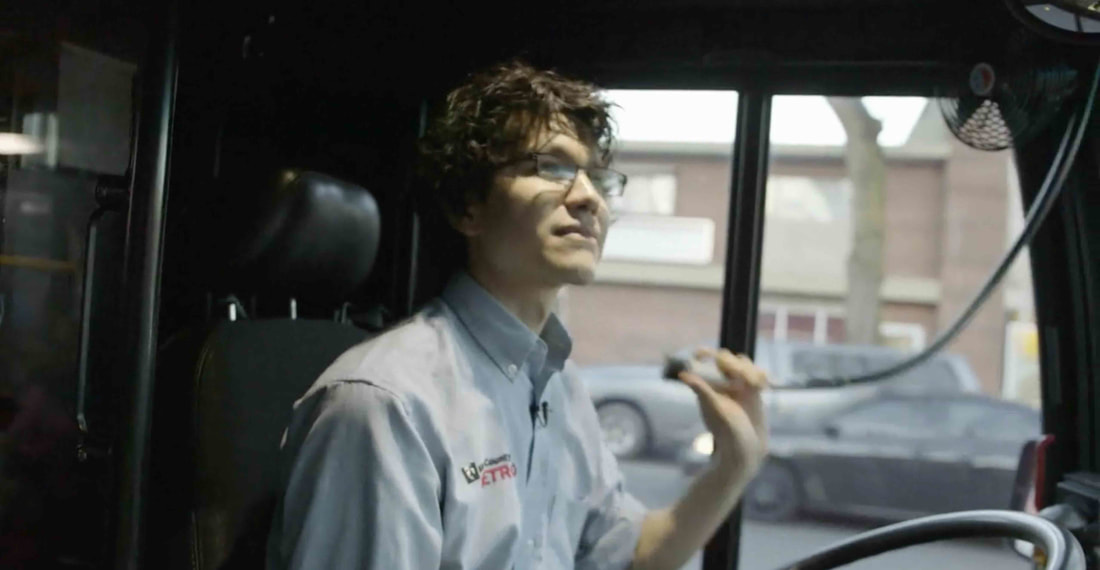
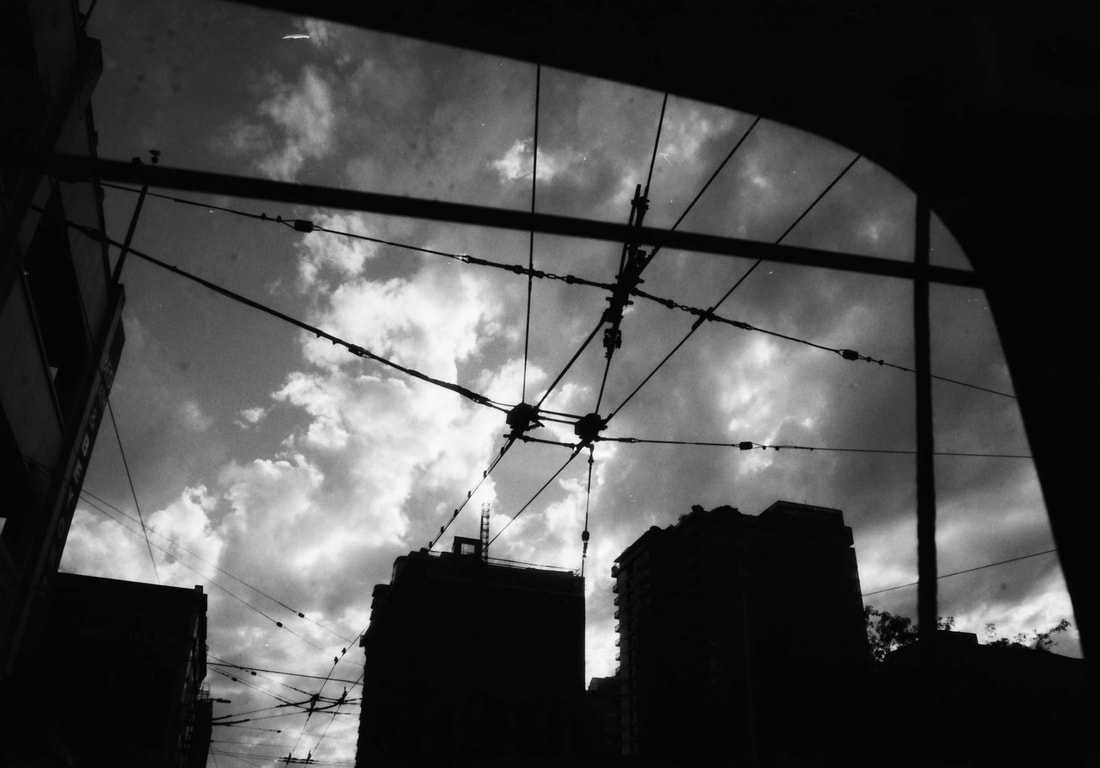
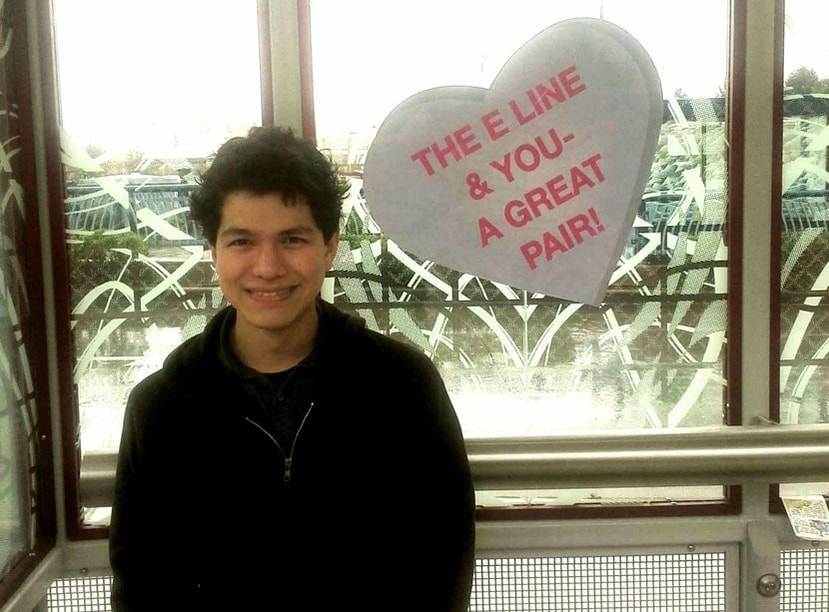
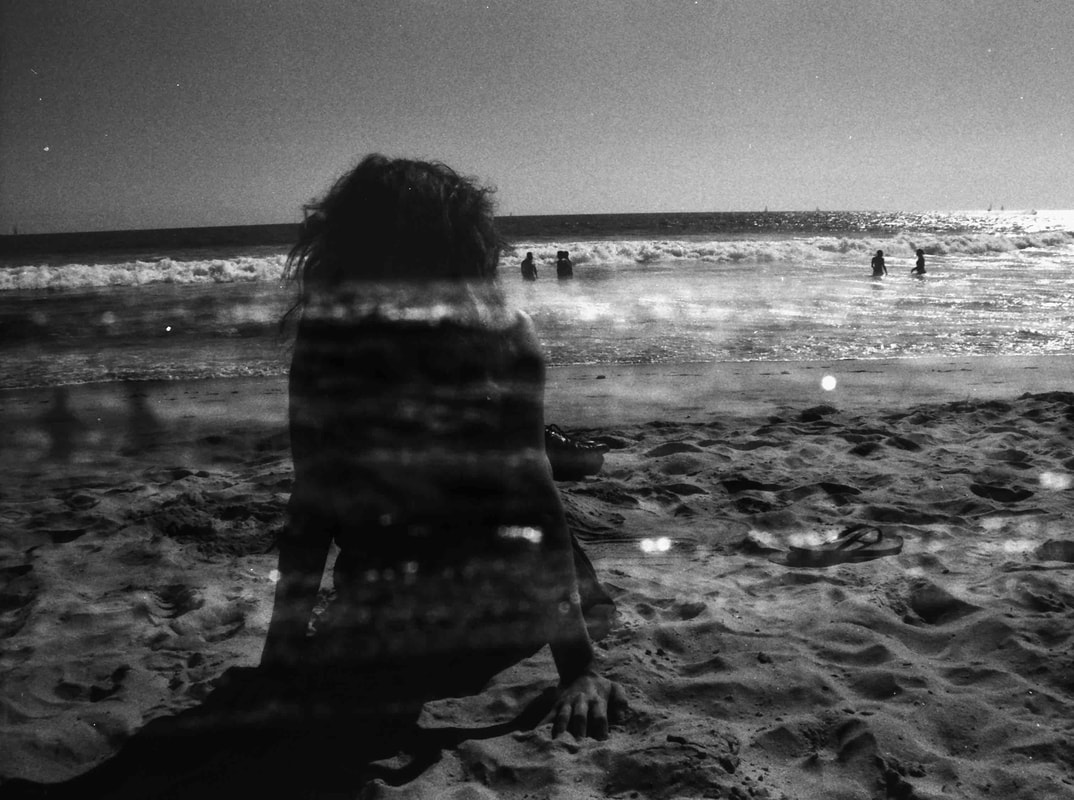
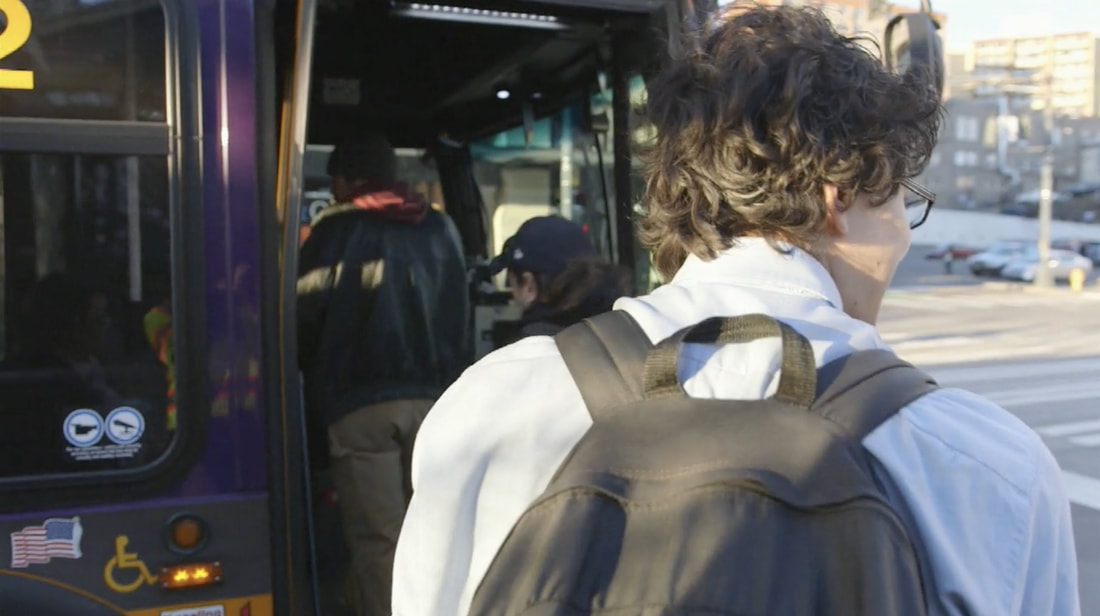
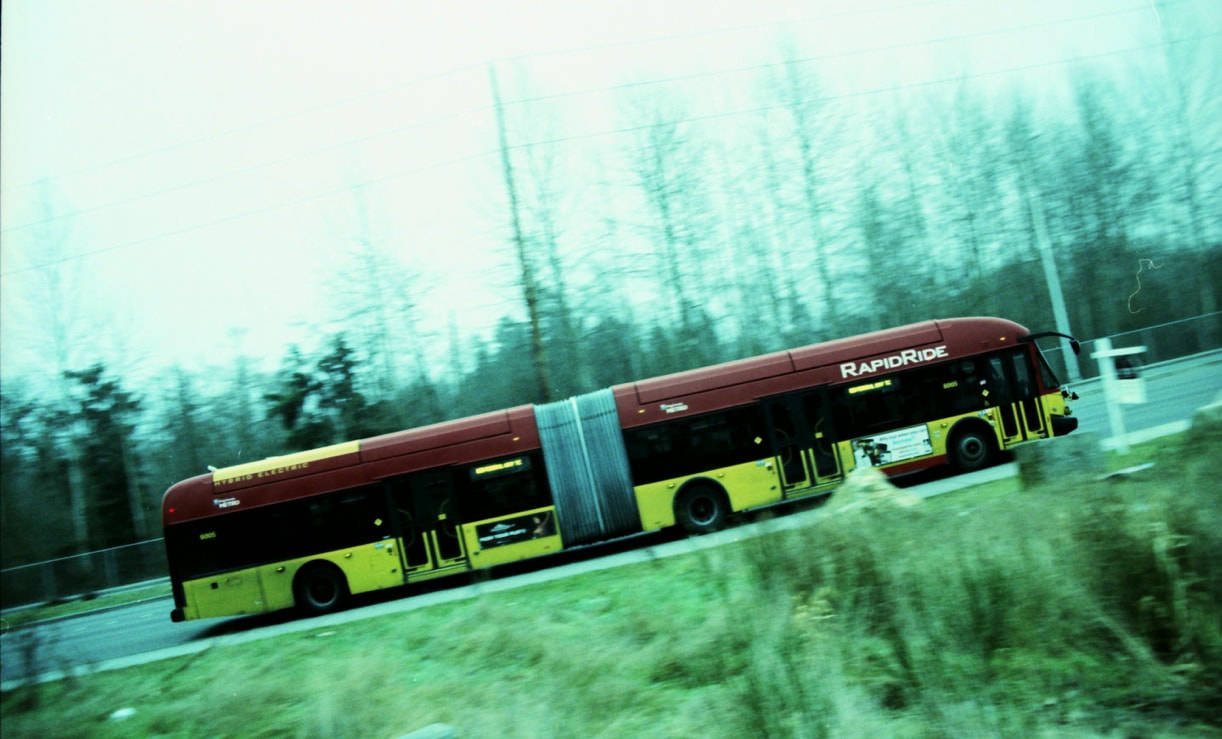
 RSS Feed
RSS Feed
